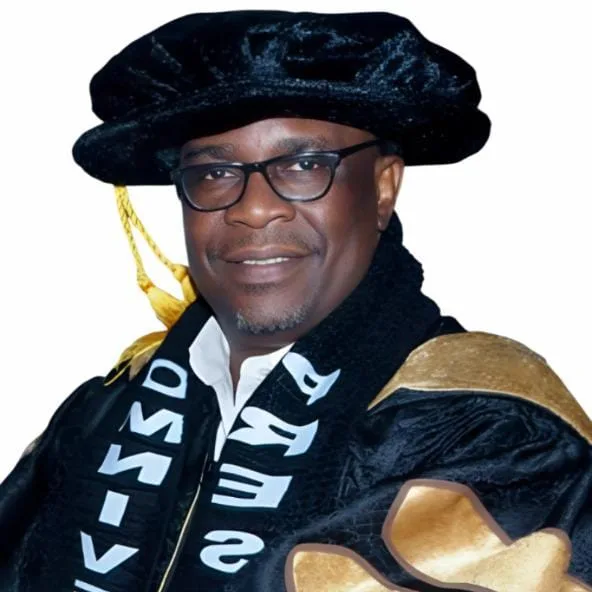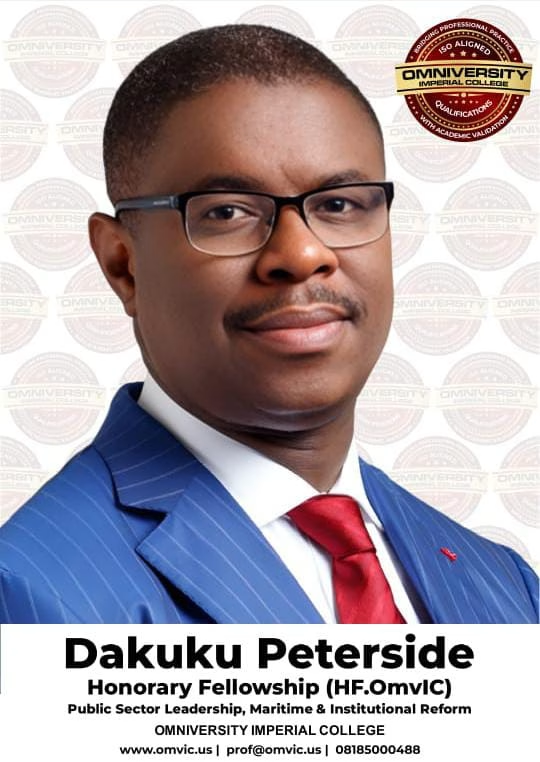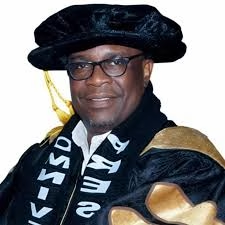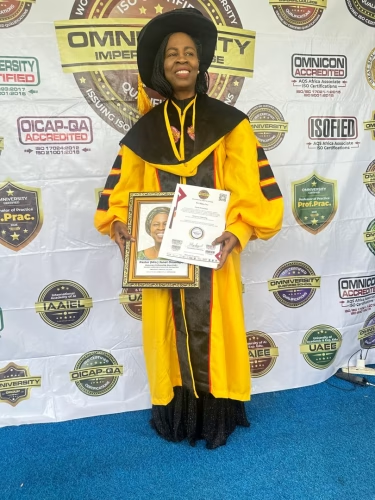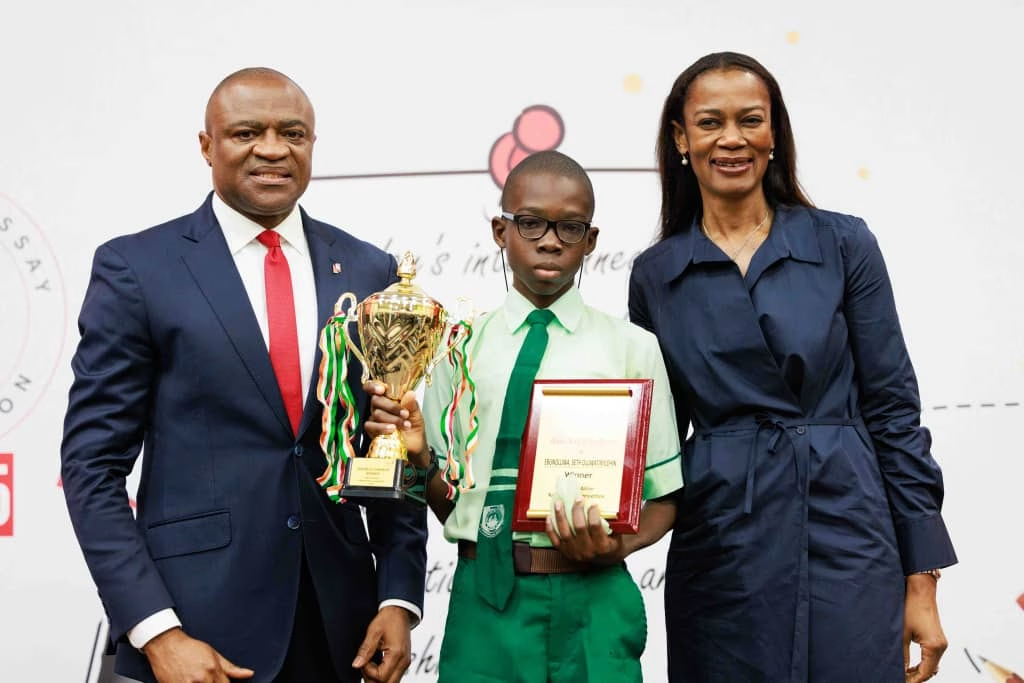Professor Tokunbo Akeredolu-Ale PhD
The Igbo apprenticeship system stands as one of Africa’s most coherent indigenous models of professional formation, enterprise succession, and competency validation. Its logic is not academic credentialism but verified capability, ethical conduct, economic relevance, and social trust.
Apprenticeship within the Igbo system is governed by clearly understood norms: learning occurs through immersion, assessment is continuous and observational, recognition is earned through demonstrable mastery, and progression culminates in formal settlement that confers independent professional standing. These principles align directly, not symbolically but structurally, with the professional practice education, evaluation, and qualification architecture of Omniversity Imperial College.
Omniversity Imperial College Lagos Nigeria is positioned deliberately as a professional practice education, executive development, and competency validation institution. Its institutional logic mirrors the Igbo apprenticeship philosophy by operating exclusively within Accreditation of Prior Experiential Learning, Competency Based Education, Structured Recognition, and ISO aligned governance frameworks. Just as the Igbo system does not rely on classroom examinations to determine readiness, Omniversity does not operate within Nigeria’s statutory university degree framework and does not award NUC regulated academic degrees. Its awards are explicitly professional, practice based, competency validated, and industry aligned, reflecting the same distinction the Igbo system has always maintained between learning and formal academic schooling.
In the Igbo apprenticeship model, the master practitioner functions as both mentor and assessor, continuously evaluating the apprentice’s technical competence, judgment, reliability, and ethical comportment.
Omniversity Imperial College institutionalizes this role through qualified assessors, professional panels, and evidence based evaluation processes. Assessment is grounded in portfolios, documented experience, applied projects, interviews, and competency mapping rather than abstract theory. This approach formalizes what has historically been informal but rigorous in Igbo commercial culture: the validation of real capability through sustained performance under supervision.
The settlement phase of the Igbo apprenticeship is the system’s ultimate validation mechanism. It represents recognition that the apprentice has achieved professional independence and is worthy of trust within the commercial ecosystem.
Omniversity’s *practice qualifications* perform an equivalent function within modern professional governance structures.
The *Bachelor of Practice* recognizes foundational competence and readiness for workforce participation.
The *Master of Practice* validates advanced applied mastery and leadership capability.
The *Doctor of Practice* confirms terminal professional authority grounded in industry impact and governance competence.
Each award is explicitly non academic, legally distinct from university degrees, and transparently positioned as a professional recognition of demonstrated capability.
This mirrors the Igbo principle that recognition follows proof, not aspiration.
The *Professor of Practice* designation at Omniversity further reflects indigenous recognition traditions.
In Igbo society, elders and master traders who have demonstrated sustained excellence, mentorship, and community impact are accorded elevated status and authority.
The *Professor of Practice* title similarly recognizes distinguished professionals with verifiable industry leadership and societal contribution. It is not an academic professorial rank and is not governed by statutory university rules. Instead, it aligns with global Professor of Practice norms that emphasize lived expertise, governance maturity, and professional legacy.
Regulatory clarity is a central strength of Omniversity Imperial College Lagos Nigeria’s framework and resonates with the Igbo system’s respect for defined roles and boundaries.
Under Nigerian law, universities are statutory degree awarding bodies, while professional institutes operate under corporate and professional governance.
Omniversity functions lawfully as a professional education provider, a practice qualification awarding institution, and a competency assessment body. It does not require NUC accreditation because it does not claim degree awarding university status. This clear separation mirrors the Igbo distinction between traditional trade mastery and formal Western education, each respected but not conflated.
Professional governance affiliations with bodies such as NITAD and CILRM further reinforce institutional legitimacy without misrepresenting academic authority. These affiliations support ethical standards, leadership development, and professional practice validation while explicitly not conferring academic accreditation. This governance model is consistent with the Igbo apprenticeship tradition, where legitimacy derives from peer recognition, guild like accountability, and reputation rather than state certification.
Omniversity’s integrated professional pathway reflects the structured progression embedded in the Igbo apprenticeship system. Advancement is sequential, competency driven, and evidence based. No level is honorary or automatic. Each stage demands verifiable performance, ethical alignment, and industry relevance. Certificates and transcripts carry explicit legends clarifying their professional, non academic nature, ensuring transparency for employers, partners, and regulators. This mirrors the Igbo emphasis on clear social signaling, where one’s status is understood through demonstrated role and function within the community.
Honorary distinctions at Omniversity Imperial College further parallel traditional Igbo recognition practices. In Igbo society, exceptional contributors to commerce, leadership, education, and community development are publicly honored based on merit, impact, and character. Omniversity’s honorary framework follows the same logic, awarding recognition strictly on demonstrated societal, educational, business, organizational, and leadership impact. These conferments are not earned through coursework and do not substitute for professional practice qualifications, reinforcing the integrity of both earned and honorary recognition.
In synthesizing indigenous African practice with globally intelligible professional frameworks, Omniversity Imperial College does not imitate tradition but formalizes it. The Igbo apprenticeship system provides historical proof that competency based, practice driven education produces resilient professionals and sustainable economic ecosystems. Omniversity Imperial College translates this proven logic into a structured, legally compliant, and internationally legible model of professional evaluation and recognition. In doing so, it affirms that Africa’s indigenous knowledge systems are not inferior precursors to modern education but foundational architectures upon which credible contemporary professional institutions can be built.
*Professor Tokunbo Akeredolu-Ale* _PhD_ President Chairman BOT GC Omniversity Imperial College Missouri USA and Lagos Nigeria
www.omvic.us
+2348185000488
+2347068431124

